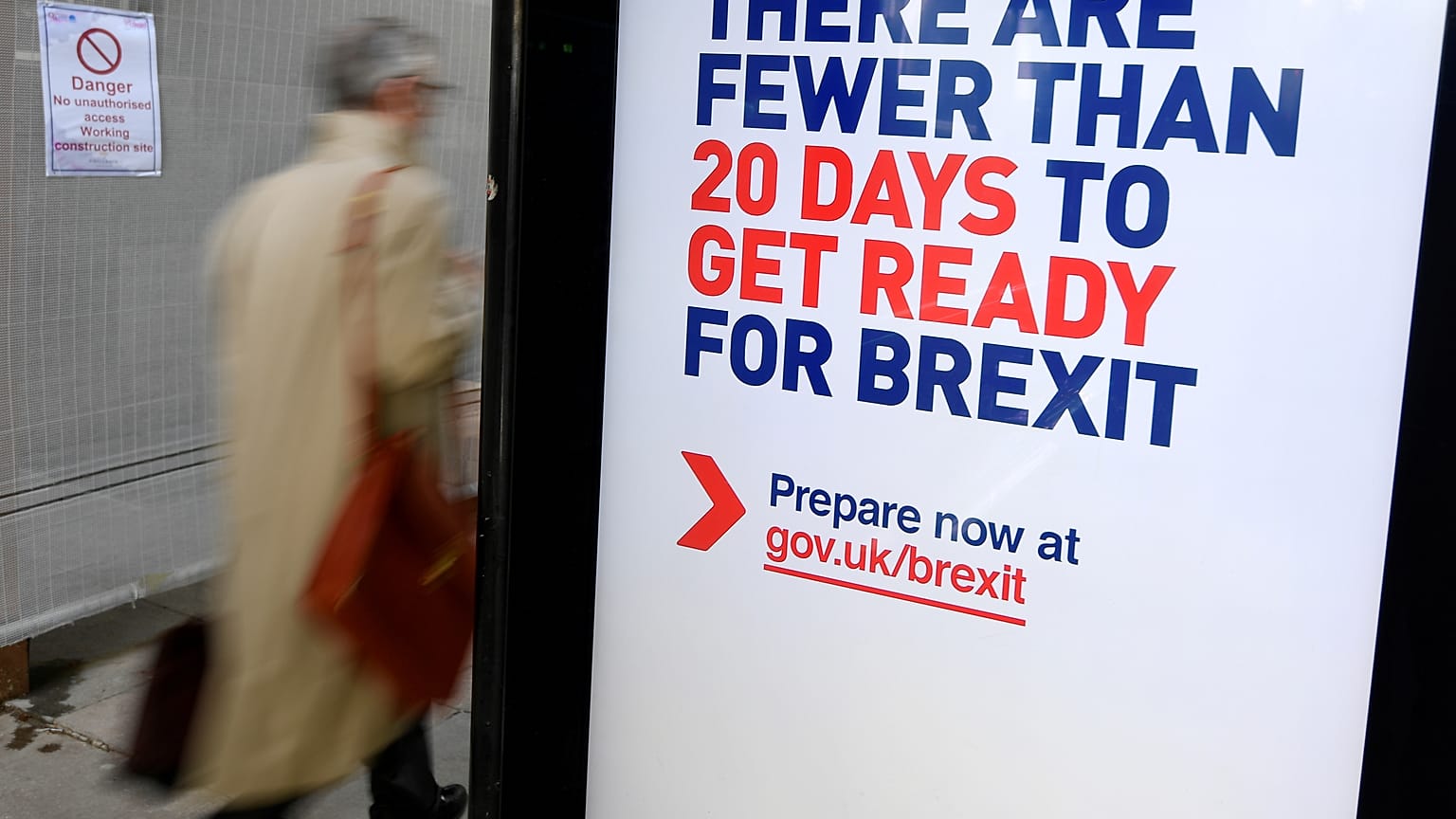As German Chancellor Angela Merkel put it: "We're at the sprint finish."
As German Chancellor Angela Merkel put it, the UK is at a Brexit "sprint finish".
From Brexiteers and Remainers to Conservatives, Labour Party members, Liberal Democrats and those backing the Brexit Party — everyone has a scenario they'd prefer to happen.
Here are the possible outcomes that could unfold over the next few days.
A deal is signed off before October 31
London and Brussels have agreed on a Brexit deal, leaders announced on the first day of the EU summit.
READ MORE Watch: Brexit deal agreed but Boris now faces battle back home
The EU27 leaders unanimously signed off on the deal, but it must now be ratified by the MEPs in the European Parliament and approved by MPs in Westminster.
The accord is a feasible option before the October 31 deadline provided MEPs and MPs back it and there's actually enough time to implement the legislation.
However, the DUP, which has been propping up the Conservative party since it lost its parliamentary majority in 2017, has said it is "unable to support" the new deal as it "drives a coach and horses through the professed sanctity of the Belfast Agreement."
What's more, Labour Party leader Jeremy Corbyn — Johnson's main opposition — said his party "cannot support this deal" and pointed toward an uncertain level of support from the rest of parliament.
Government requests a delay until January 31
If MPs do not appove the deal on Saturday, the Prime Minister must send a letter to the President of the European Council which actively "seeks" an extension to Article 50 until the end of January next year.
This is down to a piece of legislation passed by MPs, known as the "Benn Act".
The House of Commons is set to sit on Saturday, October 19 for the first time since 1982, ready for a “meaningful vote” should Johnson present parliament with a new Brexit treaty.
When pressed by the UK's Brexit select committee on Wednesday, Brexit Secretary Stephen Barclay said the government “will abide by that text” of the Benn Act.
He indicated Boris Johnson will send a letter to the EU seeking an extension should no such deal be passed.
Government goes after short delay
If in the above case there isn't enough time to sign off on legislation, the government could seek a short delay to the Brexit deadline.
If the EU agrees this would likely lead to a delayed Brexit with a new deal.
Should this request fail for whatever reason, the UK is likely to find itself exiting the bloc without an accord and we could even see a vote of no confidence in the government.
No-deal Brexit could still happen
Indeed, a no-deal Brexit is not off the table.
While Barclay gave his assurances the government would comply with the law in the event no deal were to be passed in the Commons, there have also been repeated murmurs from No 10 claiming ministers have found a way to bypass the law.
One such report that gained significant momentum was that Johnson could send a second letter asking the EU to ignore the first asking for an extension.
Negotiators are cutting it down to the wire if they are to get a deal before the summit — the next few days will undoubtedly prove to be pivotal in the Brexit saga.
Read more:















